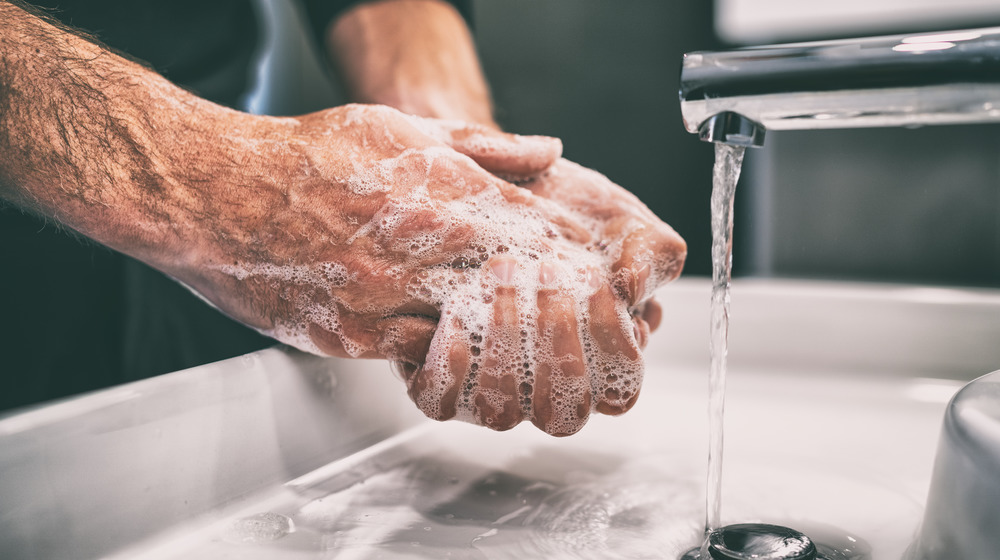What Happens If You Wash Your Hands For Less Than 20 Seconds
Hand washing is one of the most effective ways to prevent the spread of germs. The Centers for Disease Control and Prevention (CDC) advises washing hands thoroughly for a duration of 20 seconds. But what's the significance of exactly 20 seconds? If we wash for any length of time less than that, are there negative consequences of doing so?
Researchers at Michigan State University set out to learn more about both men's and women's hand washing habits. The findings of the 2013 study indicated that while women are more likely than men to engage in hand washing after using the restroom, only 5 percent of over 3,000 people observed washed their hands for the full 20 seconds required to adequately kill germs and bacteria (via CNN).
In an interview with Slate, Dr. Robert Amler, dean of the School of Health Sciences and Practice at New York Medical College and former CDC chief medical officer, explains the reasoning behind the 20-second recommendation. "The fact is, your hands have a certain amount of surface area, and you need to spend a second or more in each area. You want to cover the front and the palms of your hands. You want to cover the backs. You want to cover the spaces between the fingers and your thumb — those webs — and if you really scrub all that, it's just probably going to add up to about 20 seconds."
Underwashing can leave us vulnerable to germs and bacteria
Dr. Amler goes on to add that while 20 seconds is optimal, washing hands for less time is still better than nothing at all. While washing your hands after bathroom use may seem obvious, experts say there are other important instances where you should be regularly washing as well. Examples include when caring for a sick friend or family member, after taking out the trash, after handling fecal matter either from humans or animals, and throughout the process of food preparation (via Insider).
Family physician Dr. Sarah Borwein, MD suggests going through the song "Happy Birthday" twice as a good form of measure. However, to reduce the risk of singing too fast or too slow, Dr. Amler suggests timing yourself as an alternative method. While there are risks from underwashing, there can also be effects from overwashing. By maintaining a hand washing time of 20 seconds, you can kill off germs while also reducing the chance of dry or flaky hands.


